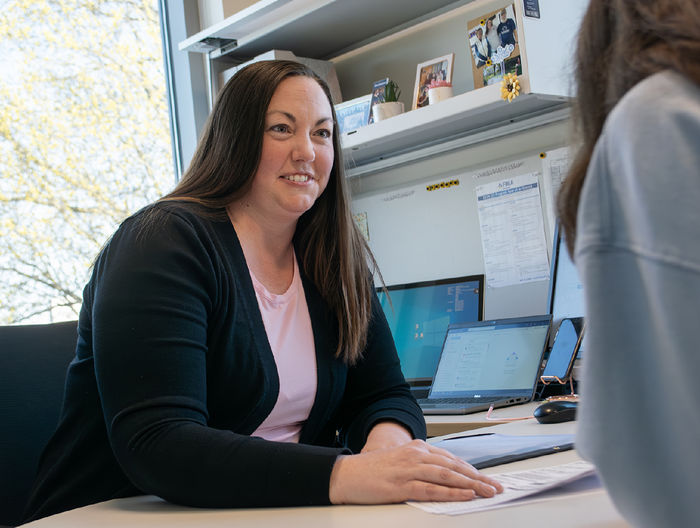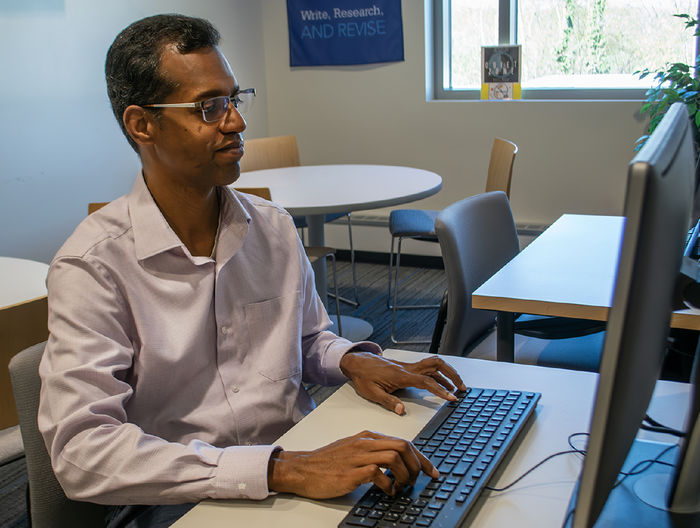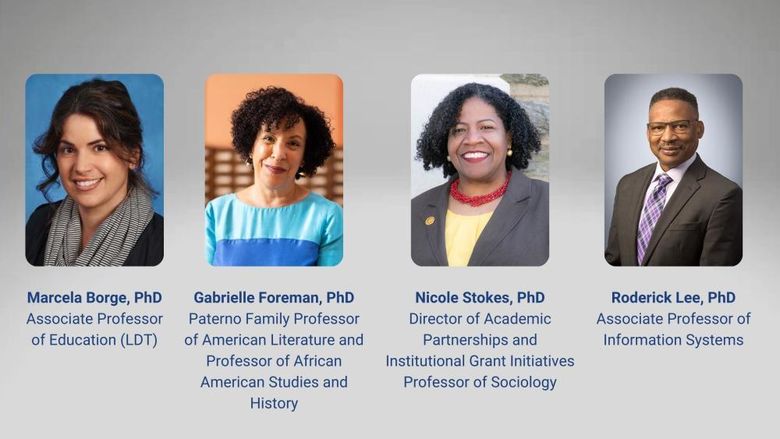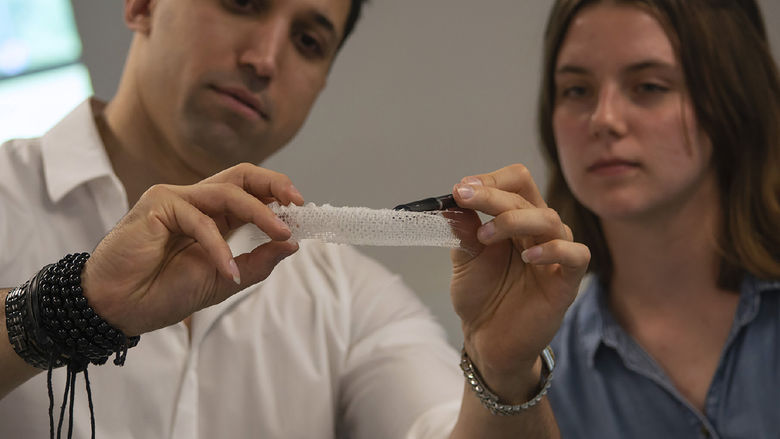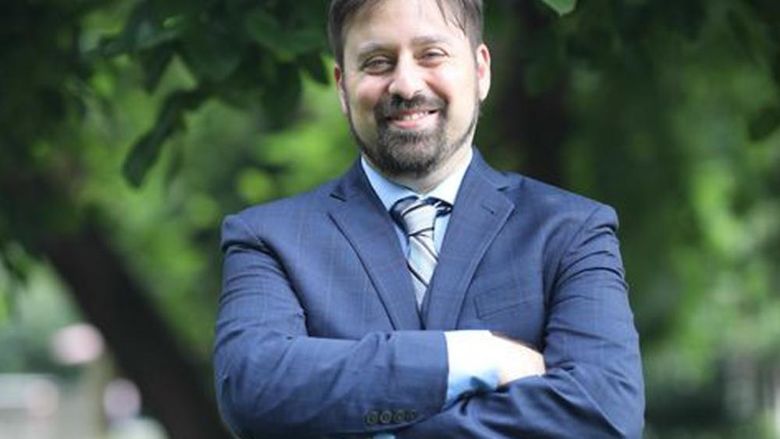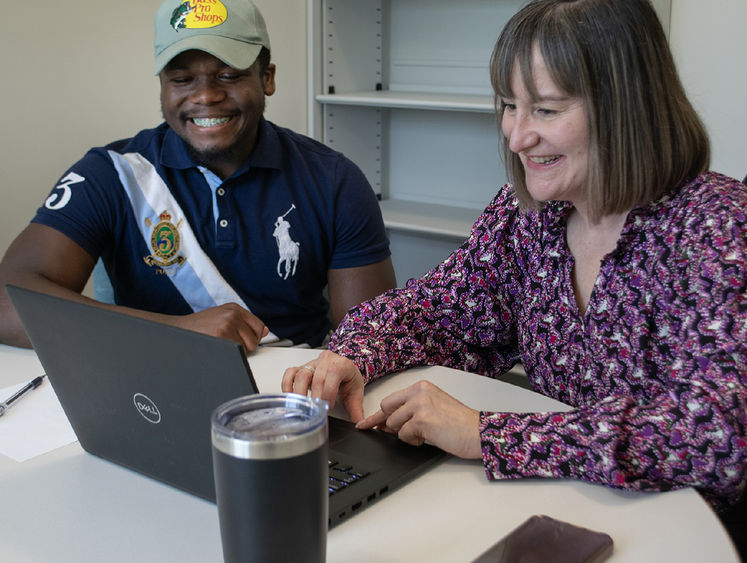
Jennifer Smith, right, assistant teaching professor of criminal justice at Penn State Harrisburg, works with student Malcolm Jenkins. Smith was a participant in the Advising Fellows program during the 2024-25 academic year, an effort aimed at enhancing faculty advising to provide better support for students.
MIDDLETOWN, Pa. — Three faculty members at Penn State Harrisburg completed a year-long Advising Fellows program, a new effort aimed at enhancing faculty advising to provide better support for students.
The Advising Fellows program was created to better support the advising of upper-division students by developing a formal, collaborative relationship between the Lambert Undergraduate Advising Center and faculty advisers who have demonstrated an interest in effective academic advising, according to Daniel Mercado, director of academic support and advising services for Penn State Harrisburg.
“We know advising is a critical factor in student retention and graduation,” Mercado said. “Recent research by the Division of Undergraduate Studies at University Park has shown that students who will meet with an adviser, either professional or faculty, are much more likely to return for the next semester than someone who doesn't.”
Lower division students — generally those in their first and second year, who are pre-major or may be transferring to another campus — are assigned professional advisers through the Advising Center. Faculty members provide advising for upper division students or transfer students approved for a Harrisburg major.
The Advising Fellows program aimed to train faculty members on best practices and connect them with support through the Advising Center. Three faculty members — Saravanan Gurupackiam, Jody Salsman and Jennifer Smith — participated in the first year.
They committed to advising 100 students in multiple majors, dedicating 10 hours per week to advising, and receiving a course release to make up for that time. They participated in ongoing professional development in advising, attended the Penn State Academic Advising Conference and a workshop through the Center for Teaching Excellence. The fellows used office space in the Advising Center in the Student Enrichment Center.
Jennifer Smith, assistant teaching professor of criminal justice, said she participated in the fellows program because she enjoys getting to know students better and connecting them with the resources they need to be successful.
“I want them to feel welcome. I want them to feel like they belong and have a place here,” she said. “I’m hoping that, obviously, they stay here … but beyond that, that they thrive.”
Jody Salsman, lecturer in accounting and an assistant women’s basketball coach, said that she had a great adviser in college who helped her graduate a semester early.
“I hope to be that to my students as well,” said Salsman. “Because I had so many athletes coming to me anyway, I was learning about a lot of different majors and requirements and things like that. … It was just kind of a natural fit.”
Saravanan Gurupackiam, associate teaching professor of civil engineering, said faculty members can get to know students better through advising.
“You get to know about the student very well as you advise. … We sit with the students one-on-one, we talk about a lot of stuff apart from academics and basically help them succeed with their academic plan,” he said.
Gurupackiam helped pilot the program for a semester, and during that time, he advised a student who was struggling academically. The student stayed in constant touch with Gurupackiam, and he stayed in contact with Mercado.
“There were so many things I learned from you, so basically I transferred all that information to him,” Gurupackiam said to Mercado during a program recognition event. The student was able to get back on track and succeed.
“He’s graduating this semester,” Gurupackiam said. “So because of this program, I learned a lot, and I was able to help the students.”
The fellows each said they benefited from being close to the professional advisers in the Advising Center — if they had a question or concern, help was steps away. Some said students even seemed more likely to come to the Advising Center than their regular office location.
“I went into this knowing a lot about advising but I still learned a ton,” Smith said.
Mercado noted that the advising fellows should now share what they’ve learned with others.
“The ultimate goal of a program like this is, over time, to really build that advising ability and have it embedded everywhere,” he said during a recognition event for the fellows. “Everything you’ve learned, you’ve got it for good. You’re going to have to take that with you and support colleagues and support others in your units, your departments and your schools so that we continue having a wonderful environment for students.”
Mercado said faculty members interested in participating in the Advising Fellows program in the future can reach out to him and also discuss it with their school directors.
